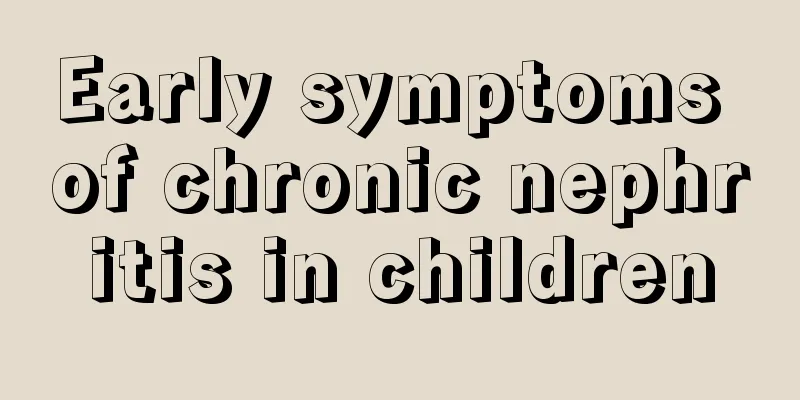What should I do if my child has indigestion and vomiting? These methods are very effective

|
Indigestion in children is actually very bad. Children cannot absorb nutrients normally. This will affect their physical development in the long run. Therefore, parents should pay attention to it. They can improve their children’s diet, pay attention to hygiene and cleanliness, etc. 1. Maintain open airways When a baby suffers from severe vomiting due to indigestion, vomitus may spray out of the nasal cavity. Parents need to immediately remove foreign objects from the nasal cavity to keep the respiratory tract open. Specific steps: 1. If vomiting occurs when the baby is standing upright or lying in bed, you can first let the baby lean forward or maintain a side-lying position to allow the vomit to flow out easily and prevent the baby from inhaling vomit, thereby avoiding suffocation or aspiration pneumonia. 2. You can place a basin next to the baby's bed in case the baby vomits again. 2. Keep your mouth clean After the baby vomits, some stomach acid, digested, and undigested food residues will remain in the mouth. The unpleasant taste will make the baby even more uncomfortable. Therefore, babies with indigestion and vomiting need to keep their mouths clean. Specific steps: 1. For younger babies, parents can clean their mouths with wet gauze and boiled water; 2. For older babies, you can rinse your mouth with warm water to keep your mouth clean. 3. Light diet If the baby vomits due to indigestion, give the baby some light salt water or light sugar water every 10 to 15 minutes after vomiting. You can also give the baby some diluted fruit juice in small amounts and multiple times. Notice: Don't rush to feed your baby. Wait until the vomiting reaction is over and then feed him some light, easily digestible food, such as porridge, soft noodles, a small amount of vegetable puree, etc. 4. Measure body temperature If your baby has indigestion and vomiting, you should pay attention to observe the baby and measure the body temperature to prevent the baby from developing a fever. Specific steps: 1. Measure your baby's temperature to see if he has a fever. 2. Pay attention to keeping the air in the room fresh. 3. You can use a cool, wet towel to wipe your baby's face to give him a cool feeling. 5. Observe for signs of dehydration If the baby has indigestion and vomits, parents should pay attention to whether the skin on the baby's hands is dry and whether the baby is dehydrated. suggestion: If your baby vomits repeatedly or has vomiting and diarrhea, and has symptoms of dehydration, you should send your baby to the hospital as soon as possible to avoid delaying your baby's condition. |
<<: What causes a child to vomit suddenly? The situation is so complicated
>>: What medicine should children take for vomiting? Recommended by authoritative experts
Recommend
What should I do if my child has a fever and cold hands and feet?
Because children's organs are not fully devel...
How to deal with baby's fever and cramps
We may know a lot about some of our baby's di...
How to treat sneezing and fever in children
How to treat children's sneezing and fever? M...
Newborns always curl up in a ball
Sleep is very important for newborns, because the...
Children often wake up crying when sleeping
If a child often wakes up and cries while sleepin...
What causes red, swollen and bleeding gums in children?
In our daily lives, it seems that children do not...
Is my baby’s poor sleep due to calcium deficiency?
Is my baby’s poor sleep due to calcium deficiency...
What causes rubella in children?
Rubella is a very common disease. It is highly co...
Is it OK to bathe a child with a fever?
In life, children's physical constitution is ...
What is the cause of blue veins on the child's body?
Whether the children's health is the most con...
Why does my baby toss and turn when sleeping at night?
Every baby is the hope of his parents and the fut...
What to do if baby has ear eczema
When it comes to eczema, many people are familiar...
What to do if your child has a fever and convulsions
Fever in young children is a common disease durin...
Treatment for a two-month-old baby who doesn't sleep
Children’s physical condition is getting worse da...
What are the symptoms of rectal polyps in babies
In our lives, many babies have some intestinal di...









